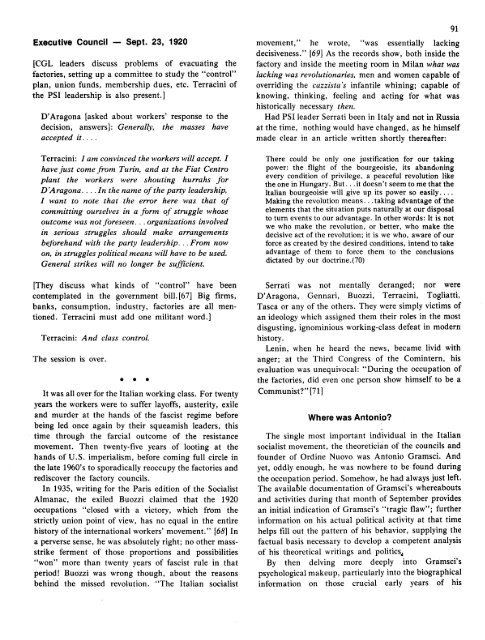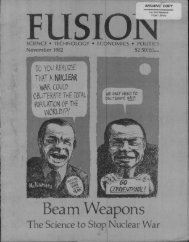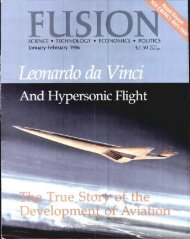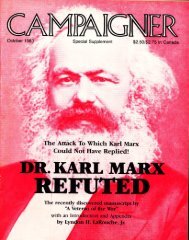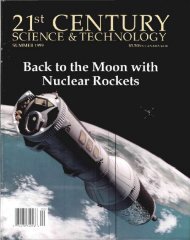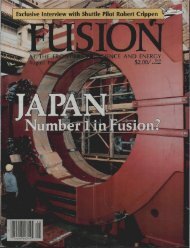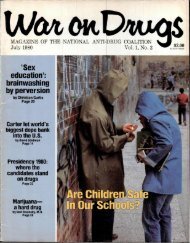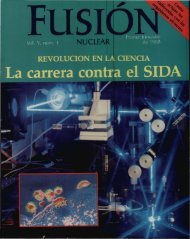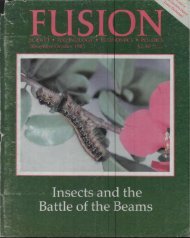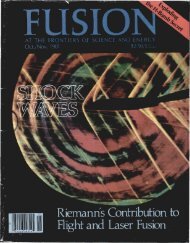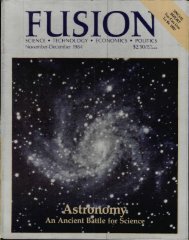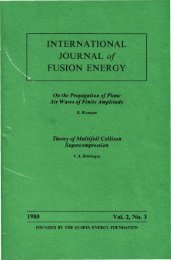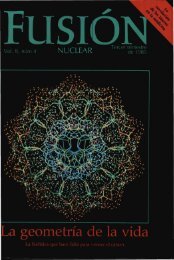The Campaigner
The Campaigner
The Campaigner
You also want an ePaper? Increase the reach of your titles
YUMPU automatically turns print PDFs into web optimized ePapers that Google loves.
Executive Council m Sept. 23, 1920 movement," he wrote, "was essentially lacking<br />
decisiveness." [69] As the records show, both inside the<br />
[CGL leaders discuss problems of evacuating the factory and inside the meeting room in Milan What was<br />
factories, setting up a committee to study the "control" lacking was revolutionaries, men and women capable of<br />
plan, union funds, membership dues, etc. Terracini of overriding the cazzista's infantile whining; capable of<br />
the PSI leadership is also present.] knowing, thinking, feeling and acting for what was<br />
historically necessary then.<br />
D'Aragona [asked about workers' response to the Had PSI leader Serrati been in Italy and not in Russia<br />
decision, answers]: Generally, the masses have at the time, nothing would have changed, as he himself<br />
accepted it .... made clear in an article written shortly thereafter:<br />
91<br />
Terracini: I am convinced the workers will accept. I <strong>The</strong>re could be only one justification for our taking<br />
have just come from Turin, and at the Fiat Centro power: the flight of the bourgeoisie, its abandoning<br />
plant the workers were shouting hurrahs for every condition of privilege; a peaceful revolution like<br />
the one in Hungary. But... it doesn't seem to me that the<br />
D'Aragona .... In the name oftheparty leadership, Italian bourgeoisie will give up its power so easily ....<br />
I want to note that the error here was that of Making the revolution means...taking advantage of the<br />
committing ourselves in a form of struggle whose elements that the situation puts naturally at our disposal<br />
outcome was not foreseen.., organizations involved to turn events to our advantage. In other words: It is not<br />
we who make the revolution, or better, who make the<br />
in serious struggles should make arrangements decisive act of the revolution; it is we who, aware of our<br />
beforehand with the party leadership... From now force as created by the desired conditions, intend'to take<br />
on, in struggles political means will have to be used. advantage of them to force them to the conclusions<br />
General strikes will no longer be sufficient, dictated by our doctrine.(70)<br />
[<strong>The</strong>y discuss what kinds of "control" have been Serrati was not mentally deranged; nor were<br />
contemplated in the government bi11.[67] Big firms, D'Aragona, Gennari, Buozzi, Terracini, Togliatti,<br />
banks, consumption, industry, factories are all men- Tasca or any of the others. <strong>The</strong>y were simply victims of<br />
tioned. Terracini must add one militant word.] an ideology which assigned them their roles in the most<br />
disgusting, ignominious working-class defeat in modern<br />
Terracini: And class control, history.<br />
Lenin, when he heard the news, became livid with<br />
<strong>The</strong> session is over. anger; at the Third Congress of the Comintern, his<br />
evaluation was unequivocal: "During the occupation of<br />
• • • the factories, did even one person show himself to be a<br />
It was all over for the Italian working class. For twenty Communist?" [71]<br />
years the workers were to suffer layoffs, austerity, exile<br />
and murder at the hands of the fascist regime before Where was Antonio?<br />
being led once again by their squeamish leaders, this t<br />
time through the farcial outcome of the resistance <strong>The</strong> single most important individual in the Italian<br />
movement. <strong>The</strong>n twenty-five years of looting at the socialist movement, the theoretician of the councils and<br />
hands of U.S. imperialism, before coming full circle in rounder of Ordine Nuovo was Antonio Gramsci. And<br />
the late 1960's to sporadically reoccupy the factories and yet, oddly enough, he was nowhere to be found during<br />
rediscover the factory councils, the occupation period. Somehow, he had always just left.<br />
In 1935, writing for the Paris edition of the Socialist <strong>The</strong> availar_le documentation of Gramsci's whereabouts<br />
Almanac, the exiled Buozzi claimed that the 1920 and activities during that month of September provides<br />
occupations "closed with a victory, which from the an initial indication of Gramsci's "tragic flaw"; further<br />
strictly union point of view, has no equal in the entire information on his actual political activity at that time<br />
history of the international workers' movement." [68] In helps fill out the pattern of his behavior, supplying the<br />
a perverse sense, he was absolutely right; no other mass- factual basis necessary to develop a competent analysis<br />
strike ferment of those proportions and possibilities of his theoretical writings and politics;<br />
"won" more than twenty years of fascist rule in that By then delving more deeply into Gramsci's<br />
period! Buozzi was wrong though, about the reasons psychological makeup, particularly into the biographical<br />
behind the missed revolution. "<strong>The</strong> Italian socialist information on those crucial early years of his


